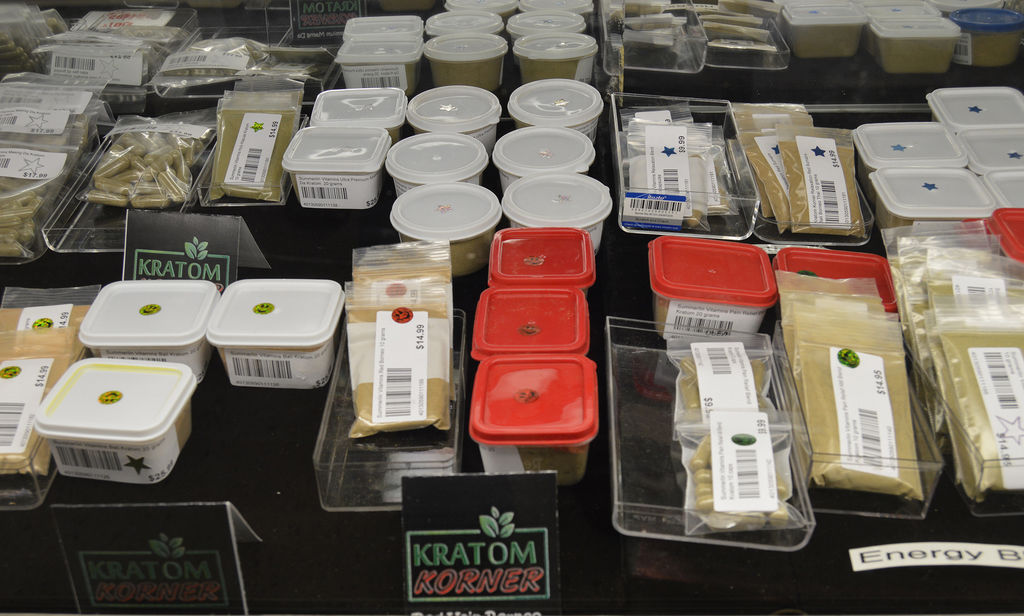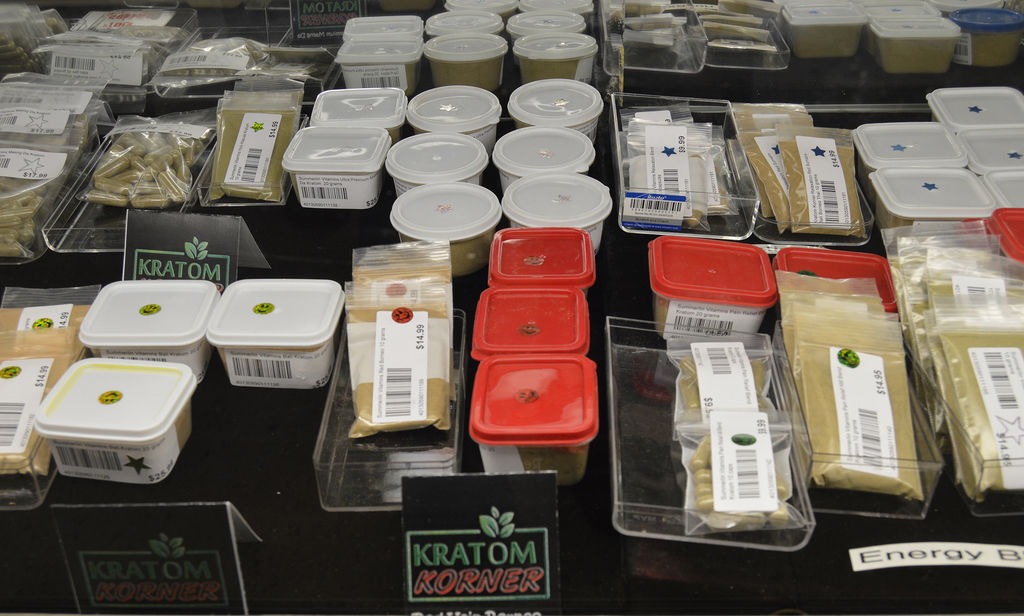Kratom ban withdrawn by DEA
DEA admits conflicting information about kratom

Herbal supplement kratom, sold locally at Summerlin Vitamins, has recently come under the scrutiny of the DEA. (Staff Photo: Jon Gosa)
ALBANY — The United States Drug Enforcement Agency announced in late August a proposed ban on the herbal supplement kratom. However, after a massive public outcry across social media from advocates of the supplement, such as users, vendors and even lawmakers, the agency has withdrawn its intent to reclassify the supplement as a schedule I controlled substance.
Schedule I is the most restrictive category of drugs regulated by the DEA and substances in this category, such as heroin, LSD and ecstasy, are ranked to have the highest abuse potential and addictive quality.
Kratom, a substance available at vitamin stores across the country as well as on the internet, is derived from the leaves of a tropical evergreen tree in the coffee family, which is native to Southeast Asia.
In regions where the tree grows, kratom has been used in traditional medicine since the 19th century, according to David Kroll, a pharmacologist and medical writer.
In the United States, kratom has become popular among people coping with chronic pain or those attempting to free themselves from opioid or alcohol addiction.
DEA spokesman Melvin Patterson said the agency received significantly more phone calls than they normally receive, calls in opposition to the ban, since the intent to reschedule the substance was announced in August. So the agency decided to withdraw its proposed ban.
“The DEA is still gathering information,” said Patterson. “We received some conflicting information in regards to the effect of kratom. We had a specialist and there was an outside specialist, but they had conflicting information on how kratom affected the Mu receptors in the brain. So we decided to step back, take public comment and do this the right way, get as much information (as possible) before going forward. We were moving to do this as an emergency scheduling.”
When the DEA first announced its intent to reschedule kratom, the agency described the substance as “an imminent hazard to public safety.”
Advocates of the herbal supplement believe pressure from pharmaceutical companies provoked the ban.
“When the DEA began saying that kratom was a danger to the American public and that they wanted to classify it Schedule I as an emergency, well that caused a tremendous backlash from people all over the country, including congressmen and even senators, all urging the DEA to not follow through with the ban,” said Lee Summerlin of Summerlin Vitamins in Albany, which sells the supplement. “Kratom is actually a substitute for many of the deadly prescription opiates that are out there, like hydrocodone and oxycontin, that are killing 30,000 people a year.
“I personally feel like the ban was brought on because of pressure from pharmaceutical companies. Kratom is cutting into their bottom line. It’s a product on the market that people are using instead of their prescription products.”
According to the DEA’s Withdrawal of Notice of Intent, the “DEA will receive from the Food and Drug Administration a scientific and medical evaluation and scheduling recommendation for” kratom. The agency has also agreed to receive public comments on the subject through Dec. 1.
Agency officials said once the DEA has received and considered all of the information regarding the substance, they will decide whether or not to proceed with permanent scheduling.





